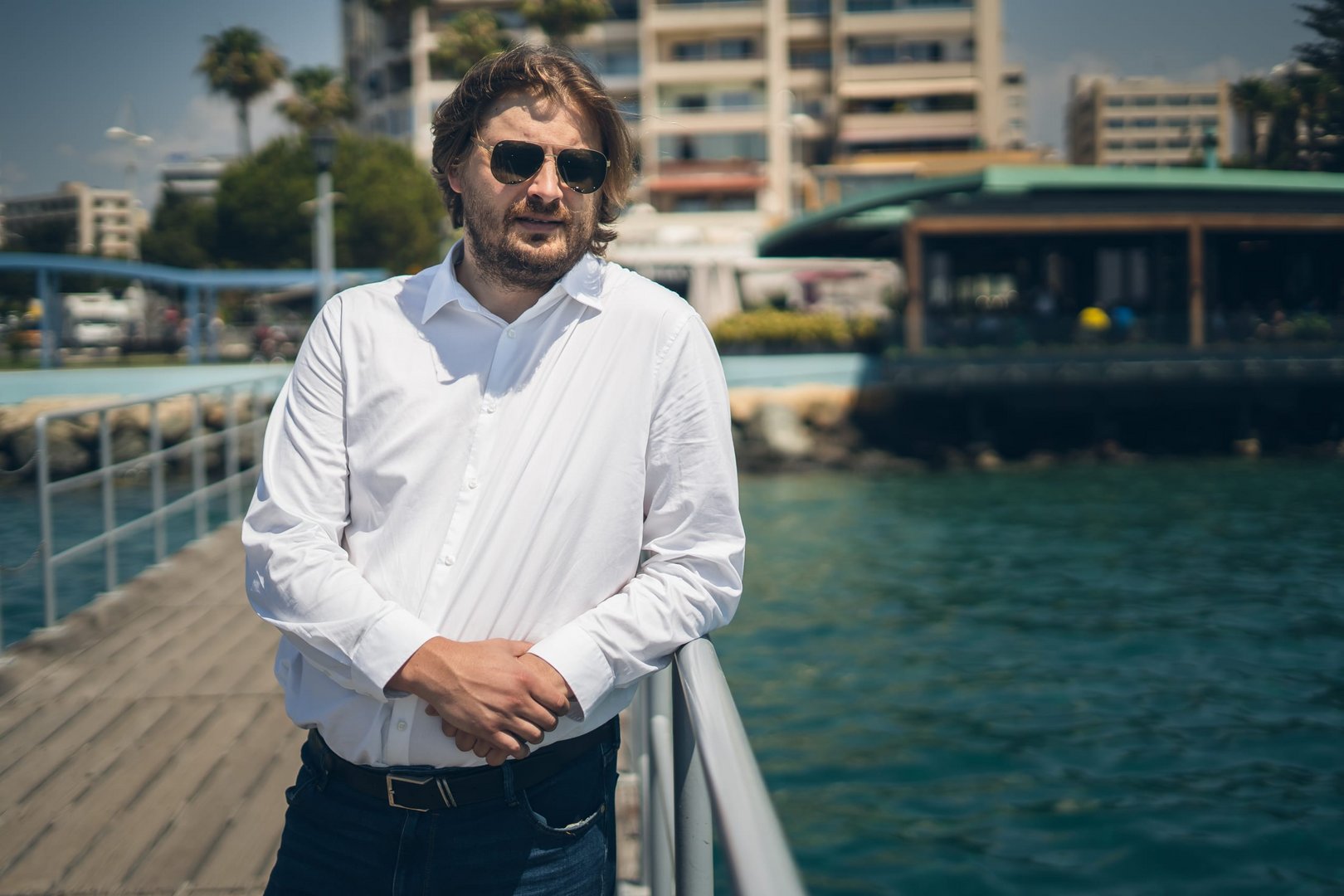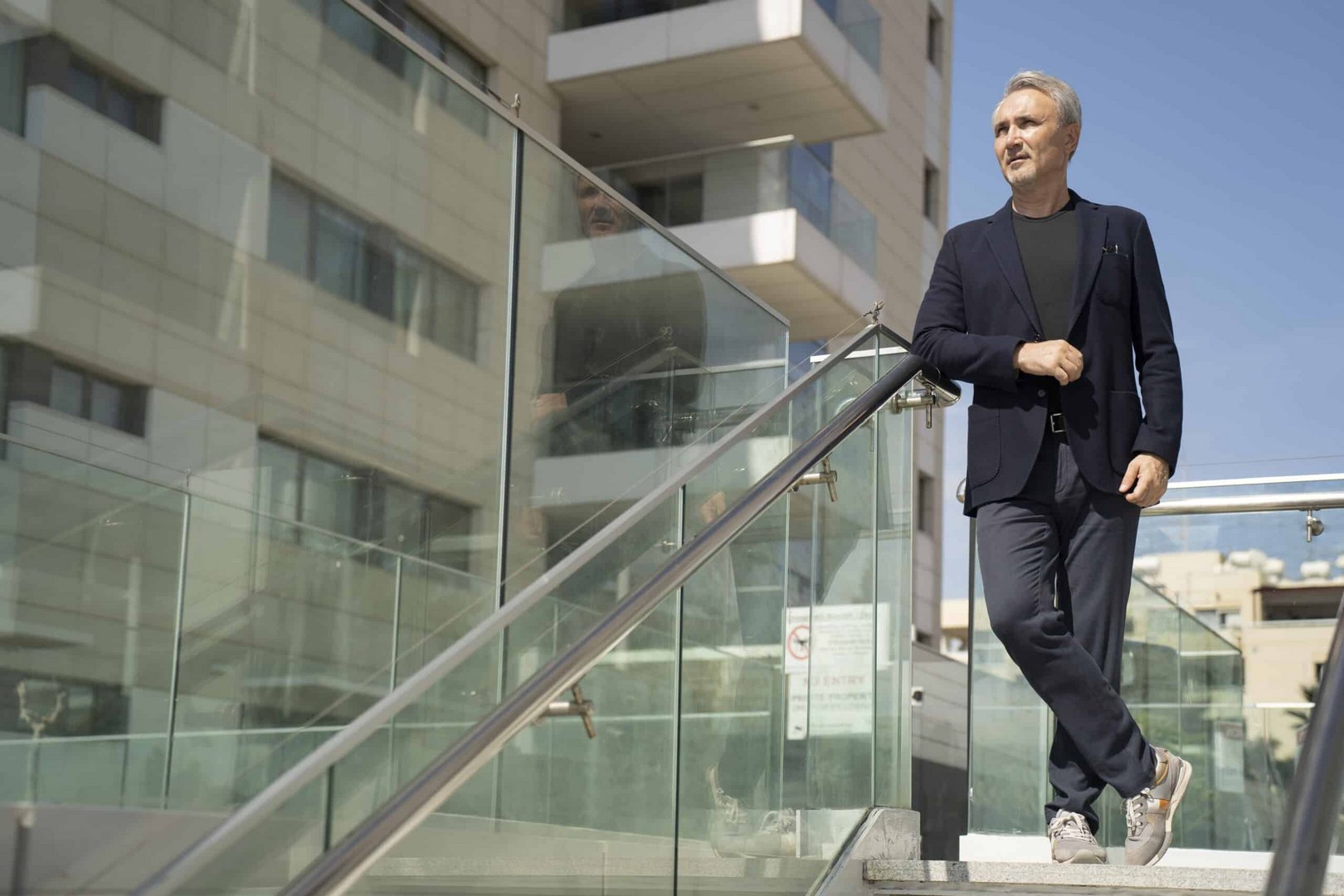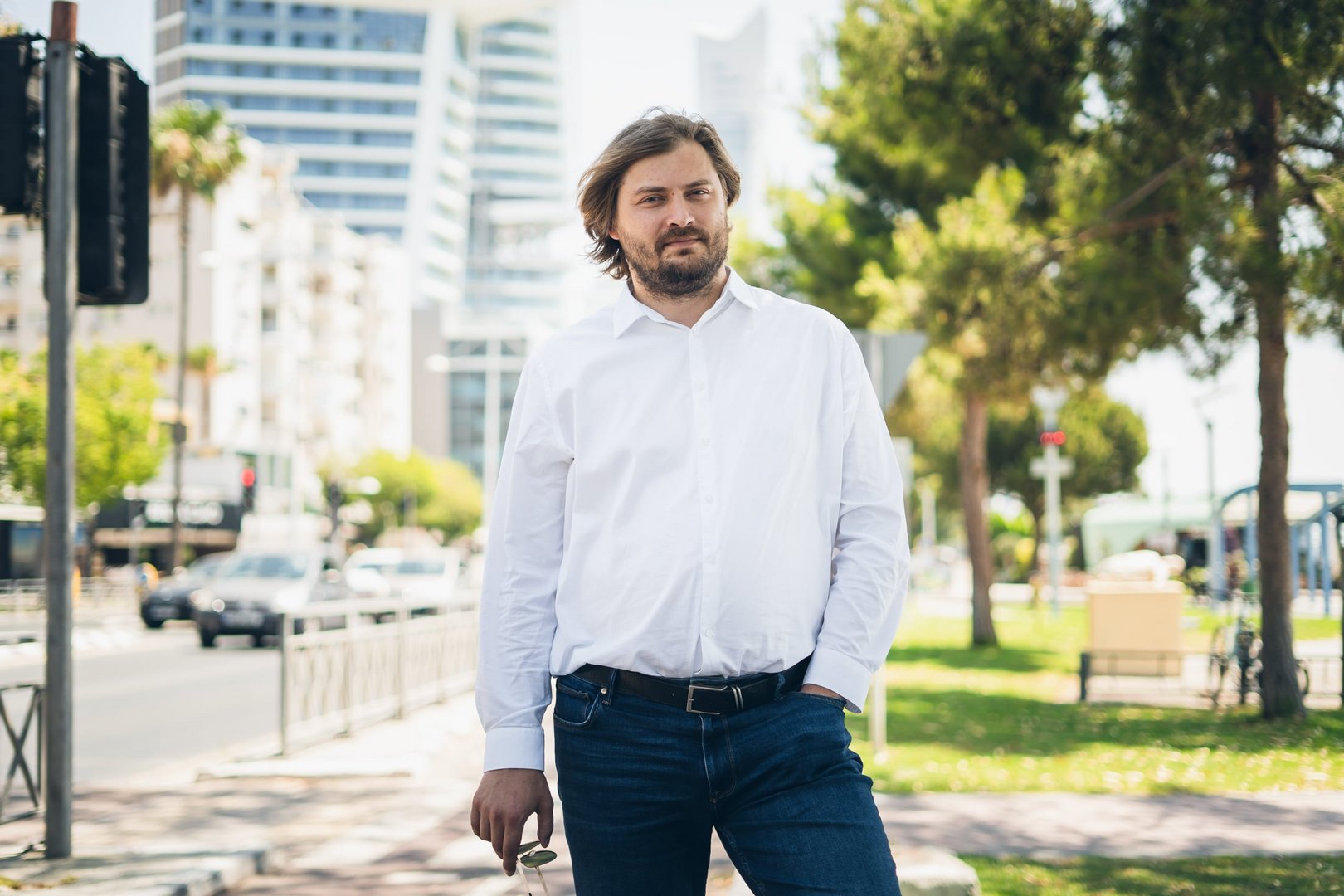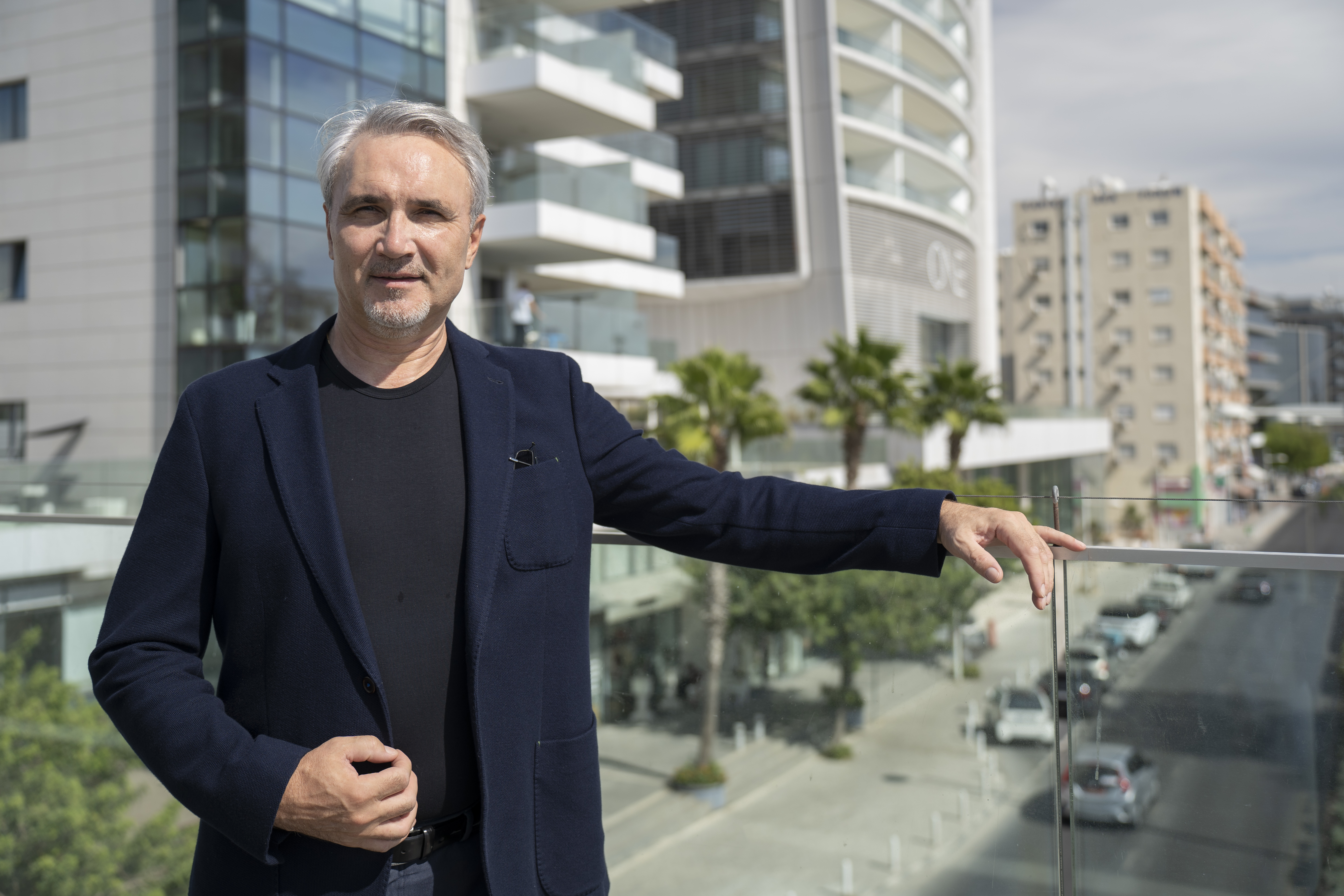The Cyprus Mail recently sat down with Zubr Capital CEO Oleg Khusaenov and partner Nikolay Shestak to discuss the private equity fund’s investment approach, the current set of challenges and opportunities, as well as the evolution of Cyprus’ startup and innovation ecosystem.
Zubr Capital is an international private equity fund management company with a mission to help facilitate a positive social impact in the world through its investment and management activities. The company provides the best expertise in Central Europe for development in international markets. Zubr Capital’s expertise includes fintech, e-commerce, cloud and SaaS, and IT product development.
The company’s key principles for responsible investment are built on the principles of respect and openness, with a focus on environmental, social, and corporate governance (ESG). As an active investor, Zubr Capital raises investments in companies with exceptional growth potential and performs a thorough preliminary evaluation of a company, including ESG aspects.
Zubr Capital’s Environmental, Social, and Governance Policy includes the creation of an ecosystem that supports the growth of portfolio companies while considering the interests of employees, partners, society, and the environment. The company values and esteems professionalism and commitment, and it aims to increase the value of portfolio investments for shareholders and investors through a combination of successful financial indicators and responsible business practices.
Zubr Capital Fund II, launched in 2022, is planning to invest in IT companies exhibiting high growth potential. In the next 5 years, the Fund will invest in 10-15 companies that comply with the Fund’s strategy, with investment sizes ranging from $2 million up to $10 million per project.
Among the Fund’s investors are successful European entrepreneurs who have been living and working for many years in Western Europe, Israel, Cyprus, and the UK. The size of the first close is $96 million. The fund size is expected to grow up to $120-150 million after international investment banks join the fund at the second close.
Zubr Capital’s unique approach to ESG goes beyond simple compliance with requirements, recognising that it is key to the long-term stability and success of portfolio companies. By raising investments in companies with exceptional growth potential and considering ESG aspects in their preliminary evaluations, Zubr Capital is setting a standard for responsible investment in the private equity industry.

Zubr Capital partner Nikolay Shestak
Recent developments
The private equity firm recently announced that it has invested $13 million in Oro, a US software and applications provider for e-commerce in the B2B space. The transaction marked the first deal for Zubr Capital Fund II since its launch last year.
The fund seeks to support IT projects with the potential to expand into Europe and the US, with minority stakes as the likely focus.
Highland Europe also participated in the funding round. Oro was founded in 2012 and has introduced applications for automating business in B2B manufacturers, suppliers, distributors and wholesalers. Its platforms include OroCommerce, OroCRM, OroPlatform and OroMarketplace.
In 2021, the company posted sales growth of 77 per cent to reach $1.7 billion, with its customer base up 80 per cent to 1.2 million users.
Cyprus’ pursuit to become a regional tech hub
Shestak told the Cyprus Mail that geographically, the company’s team is primarily based in Cyprus, where it has established its headquarters, but that it is also ready to invest in different jurisdictions with local teams.
“Cyprus is favourable for IT specialists, and many of them come here, which is a great asset for us. We believe that Cyprus will become a hub for global expansion, and we target to invest in local companies with early-stage funding,” Shestak said.
“The main idea is to have a team working in Cyprus, operating and building, generating income, and expanding globally. In our previous portfolio, we have examples of companies that confirm this idea,” he added.
He also noted that Ukraine and Belarus are “great countries for technical minds and education”, and that the company is ready to support companies.
“To summarise, we invest in teams that are ready to expand globally, and Cyprus is the main jurisdiction that will benefit from this situation,” he explained.
Khusaenov further elaborated by saying that one of the primary trends that is currently being observed in the corporate world is companies’ digital transformation.
“This requires brains and IT developers, and the countries with the most developer and software engineering universities and low cost of employees are Russia, Ukraine, and Belarus. Now, we are seeing a movement where Eastern IT developers are moving to the West, and the war in Ukraine has catalysed this process,” he said.
“However, what is the role of Cyprus in this? Cyprus has become the most friendly country for people from the East who want to relocate or establish their headquarters here. Additionally, Cyprus is a great place to meet founders because most of them structure their companies according to local laws. There are also many events for IT developers and other technology sector stakeholders to meet and link up. So, we see Cyprus as a great opportunity to establish our headquarters and benefit from this movement towards digital transformation,” he added.
Investment approach
In terms of the company’s investment approach, the duo explained that this only manifests in the form of a minority stake.
“This is the first point we usually start with, which is meeting with the team and finding out if the team is able to execute their strategy, ideas, and so on. For us, investing in the team is the key point in our investment process. We complete our own HR due diligence, and we usually do not start any further investigation of the case until that is complete. Another point is that we prefer to invest in companies that already have a product and understand how to scale it,” Shestak said.
“We have already gained expertise and knowledge in a few industries, such as e-commerce. Additionally, we have experience in FinTech and advertisement through our existing portfolio. We aim to assist our companies in achieving growth, and therefore, it’s not a guarantee in every single case,” he added.

Zubr Capital CEO Oleg Khusaenov
Khusaenov further explained that there are two main approaches, the hands-on approach and the hands-off approach.
“Zubr Capital is a company that uses the hands-on approach. When we invest in a company, we have an expert team within our management company that helps create an efficient back-office strategy. This includes the right financial system, how to manage money, HR, hiring talented individuals, how to motivate them, how to give them option programmes, and how to structure the company and its departments,” he said.
“We also have expertise in building sales and marketing in different countries, especially in the United States, the UK, Germany, and France. We have experience in finding the right people in those countries. However, we do not get involved in the product because the product is the responsibility of the founders. They know everything about the product and the customers, and we just help them build the back-office and front-office,” he added.
Exit strategy
One of the key aspects for all investment companies is how and when to exit, meaning the point in time they sell their share in a company and what objectives they have in terms of a return.
Shestak noted that exiting is very challenging, but it usually happens at least once in a while. For Zubr Capital, he explained, the exit strategy is prepared from the very beginning of the investment process. This involves evaluating the potential profile of the company, how it should look in order to be interesting to potential buyers, and who could be the potential buyers, including whether the company is able to do that, which is a separate part of the case preparation process.
“Exiting is crucial. In general, we consider two main points. The first is our holding period, which is usually between three to seven years, with the average being around five years. So, we should agree from the very beginning that in five years, there will be a question about how to exit. That’s the first point. And the second point for us is what we refer to as windows. Because as you can see, right now, the market is not usually ready for efficient exits. For example, two years ago, or a year ago, for any technology company, it was an ideal period to exit. And right now, we are seeing a bit of a slowdown. Of course, when we analyse the cycle, we always have to understand that there are ups and downs. So, again, we also have to be ready to make our decision about an exit as soon as we see that it is the right moment,” Shestak said.
“The last point is that we start to work on the exit from the first day after we invest in the company. Of course, our strategy is also part of the exit, and from the first day, we try to create the team and the structure of the team which could also be interesting for a potential exit. We start, let’s say, speaking with the industry and feeling and understanding what will be the needs of potential buyers in the near future. Preparing for this takes time. You have to know exactly what you do, and what will be expected according to the various dimensions that we use in our models,” he added.

Zubr Capital partner Nikolay Shestak
Khusaenov added that sometimes the joke inside the industry is that the exit process is like one’s daughter’s engagement process.
“You know when it’s time for your daughter to leave your family because there are certain conditions that indicate that it will be good for her. Similarly, investors say that when we invest in our portfolio company, we know exactly when we will let go of this company. But for us, it’s like our daughter, and we’re looking for the next investor who would be more appropriate for this company,” he said.
Shestak further explained that one point they always try to emphasise is their philosophy towards developing companies, which may not be typical but it is something they strongly believe in.
“Instead of solely focusing on the exit, we prioritise developing the company as if it is not for sale. This approach prevents us from making short-sighted decisions in favour of increased profitability or artificially inflating the balance sheet,” Shestak said.
“Our goal is to create companies that we would want to keep for the long haul. If the company is successful, it will naturally be attractive to potential buyers. From the very beginning, we try to be as conservative as possible when creating variations of our companies, prioritising stability over revenue growth,” he added.
Challenges and opportunities
Regarding the challenging economic environment that companies are now having to contend with, Shestak explained that such periods also present numerous opportunities that companies can exploit, particularly in cases where they have accumulated cash reserves from previous years.
“What we see right now is that it’s becoming much easier, if you have the necessary liquidity, to execute good deals. It is also much easier right now to get qualified talent in your team. It’s also about cycles. It’s much easier to generate returns when you invest in the down cycle and exit on the high side. Therefore, right now, we are quite optimistic about the future. Of course, we consider all our cases more carefully now. So we try to have much more protection on the legal side, some downside actions, and so on. But we are still ready to support potential portfolio companies during this challenging time,” he said.
“We have been ready to work in quite a challenging geography from the very beginning, with entrepreneurs from Belarus, Ukraine, and Russia. So we still believe, and maybe we are optimists, that the future is bright,” he added.
Meanwhile, Khusaenov said that the biggest problem right now is on the banking side, primarily for two reasons.
“Firstly, with banks facing bankruptcy, it’s crucial for us, even for our funds, to ensure that our money is kept in the right bank to avoid losing it. Secondly, it’s challenging to open a bank account in Europe or the United States for companies with roots in Russia, Belarus, and Ukraine, especially Russia, which is now viewed as a toxic country,” he said.
“It now takes a long time to make a decision about opening an account because of the know-your-customer (KYC) procedure and risk management process. Currently, most of our time is spent negotiating with banks to explain what a particular company does or why it’s not toxic and why it’s safe for the bank to invest in them,” Khusaenov added.
Optimistic about Cypurs
Finally, Shestak noted that “ Cyprus has seen significant development, with a big electronic money institution industry emerging as an alternative”.
“While Cyprus is still slightly behind Lithuania, there is potential for growth. However, there are also challenges, with local banks being extremely conservative and not open to discussing cryptocurrencies, for example. On the other hand, we see a lot of interest and activity in Web 3.0 and blockchain projects, as well as betting companies,” he said.
“So, there are certainly challenges to overcome, but we believe that there is still room for development and potential returns in Cyprus. The biggest challenge is that the rules of the game are constantly changing, and you need to adapt quickly to respond to these changes. Despite this, we remain positive about the future of Cyprus,” he concluded.







Click here to change your cookie preferences